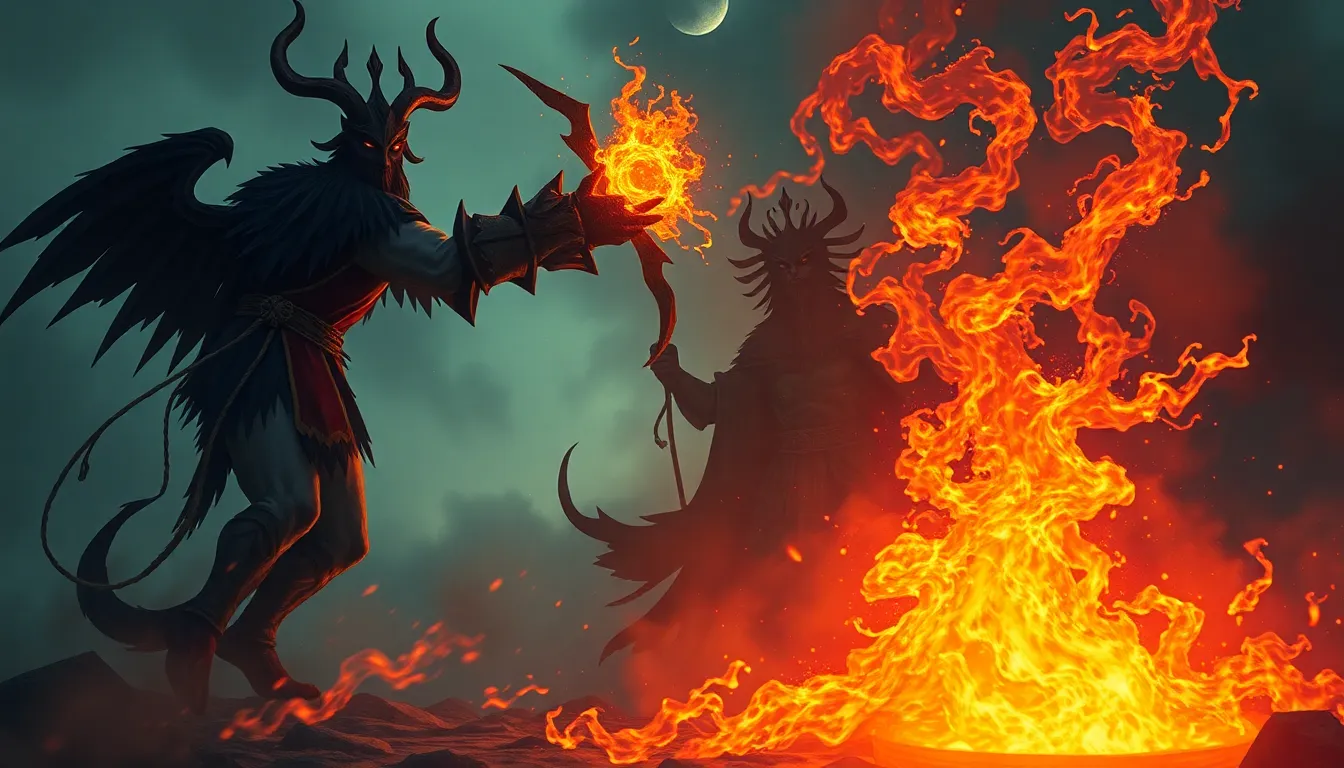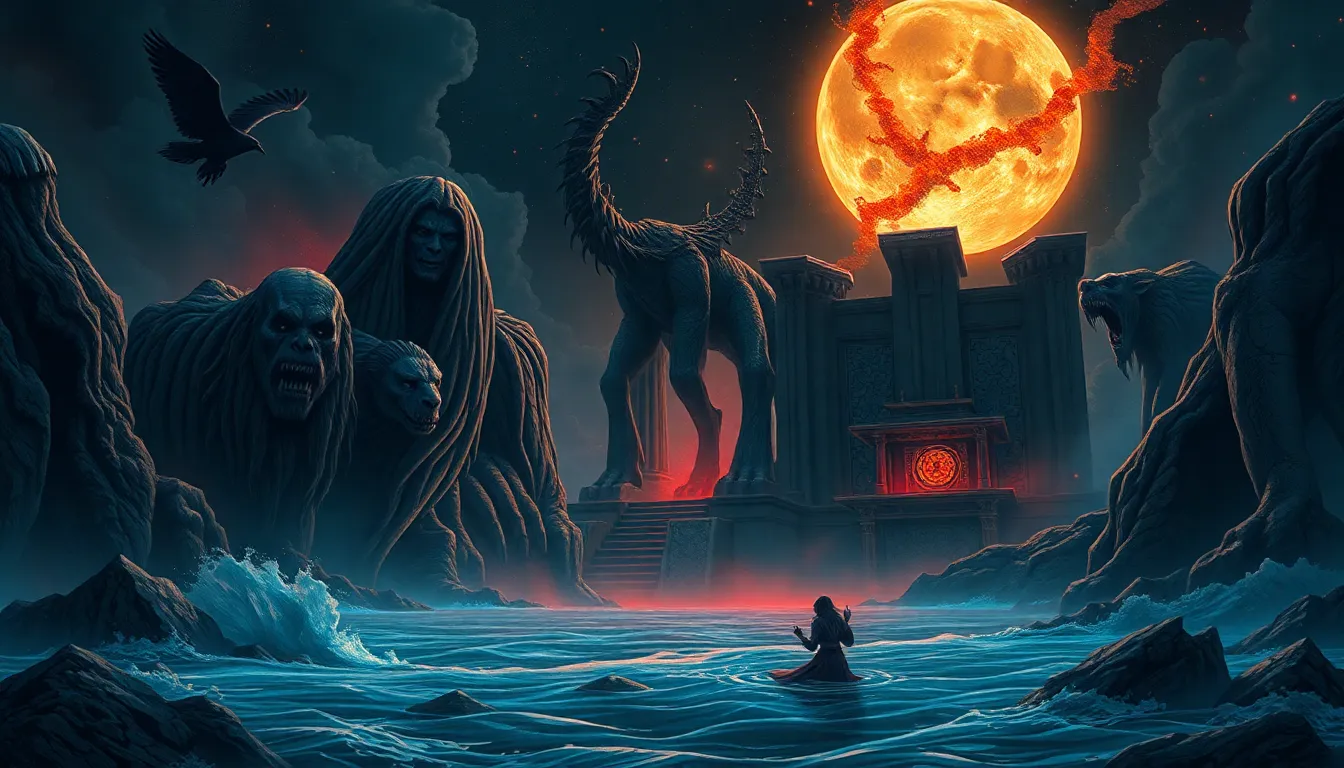Cultural Heroes: The Myths That Strengthen Communities
I. Introduction
Cultural heroes are figures who embody the values, ideals, and narratives of a community, often becoming symbols of hope and resilience. These heroes, whether historical or contemporary, play a crucial role in shaping collective identity and fostering unity among individuals. Myths surrounding these heroes serve to reinforce community bonds and provide a framework for understanding cultural heritage. This article aims to explore the concept of cultural heroes, the myths that surround them, their psychological impact, and their significance in education and social values, ultimately highlighting their role in strengthening communities.
II. The Concept of Cultural Heroes
A cultural hero is often characterized by qualities such as bravery, wisdom, and selflessness. They may emerge from various backgrounds and eras, yet they all share a common thread: the ability to inspire and unite their communities.
A. Characteristics of Cultural Heroes
- Bravery in the face of adversity
- Commitment to social values
- Ability to inspire others
- Representation of cultural ideals
B. Historical Examples of Cultural Heroes Across Various Cultures
Throughout history, numerous figures have been celebrated as cultural heroes. For instance:
- Martin Luther King Jr. – A symbol of the civil rights movement in the United States.
- Nelson Mandela – An icon of the fight against apartheid in South Africa.
- Frida Kahlo – A celebrated artist representing Mexican culture and feminism.
- Gandhi – A proponent of non-violent resistance in India.
C. The Role of Storytelling in Shaping Cultural Heroes
Storytelling is essential in the creation and perpetuation of cultural heroes. Through oral traditions, literature, and now digital mediums, narratives about these heroes evolve and adapt, ensuring their legacy endures across generations.
III. The Myths Surrounding Cultural Heroes
Myths surrounding cultural heroes often encapsulate the hopes and dreams of a community. They provide a narrative framework through which individuals can understand their identity and place within the larger societal context.
A. Common Themes in Myths of Cultural Heroes
- Overcoming adversity
- Self-sacrifice for the greater good
- Transformation and redemption
- Unity and collective strength
B. How Myths Evolve Over Time
As societies change, so too do the myths that surround their heroes. New generations reinterpret these narratives, often infusing modern ideals and values, leading to a dynamic understanding of what it means to be a cultural hero.
C. The Impact of Myths on Community Identity and Cohesion
The myths of cultural heroes play a pivotal role in shaping community identity. They foster a sense of belonging and shared purpose, encouraging individuals to engage with their cultural heritage and participate in communal activities.
IV. The Psychological Impact of Cultural Heroes
Cultural heroes have a profound psychological impact on individuals and communities. They serve as role models, offering inspiration and motivation for collective and individual action.
A. How Cultural Heroes Inspire Individual and Collective Behavior
The stories of cultural heroes often prompt individuals to reflect on their values and aspirations, inspiring them to take action within their communities.
B. The Role of Cultural Heroes in Fostering Resilience and Hope
During difficult times, cultural heroes symbolize resilience and hope, encouraging communities to persevere through challenges and maintain their cultural identity.
C. Case Studies: Communities Transformed by Their Cultural Heroes
Numerous communities have experienced transformation through the lens of their cultural heroes. For example, the legacy of Rosa Parks continues to inspire movements for social justice, illustrating the enduring power of heroism in effecting change.
V. Cultural Heroes and Social Values
The myths surrounding cultural heroes often reflect the social values of their time, serving as a mirror for society’s ideals and aspirations.
A. Reflection of Societal Values in the Myths of Cultural Heroes
Cultural heroes embody the values that communities hold dear, such as equality, justice, and courage, influencing the collective moral compass.
B. The Role of Cultural Heroes in Promoting Social Justice and Equality
Many cultural heroes have championed social justice, using their platforms to advocate for equality and human rights, inspiring future generations to pursue similar paths.
C. How Cultural Heroes Challenge or Reinforce Stereotypes
While some cultural heroes challenge existing stereotypes, others may inadvertently reinforce them, highlighting the complexity of their narratives and the need for critical engagement.
VI. The Role of Cultural Heroes in Education
Integrating cultural heroes into educational curricula is vital for fostering community engagement and cultural understanding among students.
A. Integrating Cultural Heroes into Educational Curriculums
Schools can incorporate lessons about cultural heroes to teach students about history, social values, and the importance of community involvement.
B. Benefits of Teaching About Cultural Heroes for Community Engagement
Engaging with the narratives of cultural heroes can motivate students to become active participants in their communities, fostering a sense of pride and responsibility.
C. Examples of Successful Educational Initiatives
Programs that celebrate local heroes through storytelling, art, and community service have proven successful in many regions, helping to strengthen community ties and cultural identity.
VII. Contemporary Cultural Heroes
In the modern era, cultural heroes continue to emerge, shaped by contemporary challenges and the digital landscape.
A. Identifying Modern-Day Cultural Heroes
Figures like Malala Yousafzai and Greta Thunberg serve as contemporary cultural heroes, advocating for education and climate justice, respectively.
B. The Significance of Digital Platforms in Shaping New Myths
Social media and digital platforms allow for the rapid dissemination of stories about cultural heroes, enabling new narratives to take root and flourish in real-time.
C. The Intersection of Cultural Heroes with Global Movements
Today’s cultural heroes often intersect with global movements, uniting individuals across borders in the pursuit of common goals, such as human rights and environmental sustainability.
VIII. Critiques and Challenges
While the celebration of cultural heroes is important, it is also essential to acknowledge the critiques and challenges associated with their myths.
A. The Potential Pitfalls of Idolizing Cultural Heroes
Idolization can lead to unrealistic expectations and the oversimplification of complex individuals, diminishing their contributions and the nuances of their stories.
B. The Danger of Oversimplification in Myths
Myths can often gloss over the flaws and mistakes of cultural heroes, creating a narrative that may not accurately reflect their true character or the challenges they faced.
C. Balancing the Celebration of Heroes with an Understanding of Their Flaws
It is crucial to celebrate cultural heroes while also recognizing their human complexities, providing a more holistic understanding of their impact on society.
IX. Cultivating New Cultural Heroes
As society evolves, there is a need to cultivate new cultural heroes who resonate with contemporary values and challenges.
A. Encouraging Community Involvement in Recognizing



